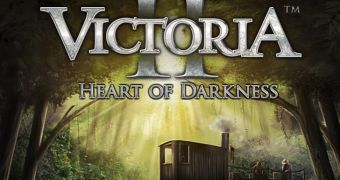Earlier during spring, I spent a week of vacation in Berlin, Germany, during which I cut myself off from any kind of news stream related to video games, I did not touch any electronic devices other than to make sure that I reached my destinations in the city and did not talk about my job and hobby, except for one night when a friend remembered some happy times playing Duke Nukem.
I actually actively tried not to think about video games in any way during the seven-day period and instead focus on the sights of the city, which are truly impressive, the good food (a little heavy for me) and the excellent beer (mostly lager and bock).
Yet, I found myself in the National History Museum, trying to explain the state of German politics around the moment of the 1848 revolutions without asking my friends to spend time reading about it and Victoria II, the grand strategy title from Paradox Interactive, popped into my mind.
The title does a great job of simulating the way the various powers in Europe dealt with the XIXth century and then the period up to World War I, simulating their economies, their diplomatic relations, the advances of technology and, more importantly, the way the various social classes evolved and influenced their leadership.
German history is very complicated and the rise of Prussia and its ability to unite a lot of the states into an Empire might seem almost magical for some casual students of history.
After playing Victoria II as the faction, it all makes much more sense to me and I understand real-world history better.
I recommended the game to my friends, although I doubt they have the time to play it, and then added that they might turn to Europa Universalis IV in order to understand the Medieval history of the various German principalities.
Video games are often criticized for their focus on violence and on anti-social activities, but there are more niche titles that strive to carefully simulate real-world systems and can serve as easy and quick guides for complex situations.
Soon after that, I found myself talking about boardgames when we were visiting a train station and looking at a memorial for Jews that were shipped to concentration camps.
The experience is called Train and was created by Brenda Romero in order to show how the genre could be used to educate and deliver political statements.

 14 DAY TRIAL //
14 DAY TRIAL //